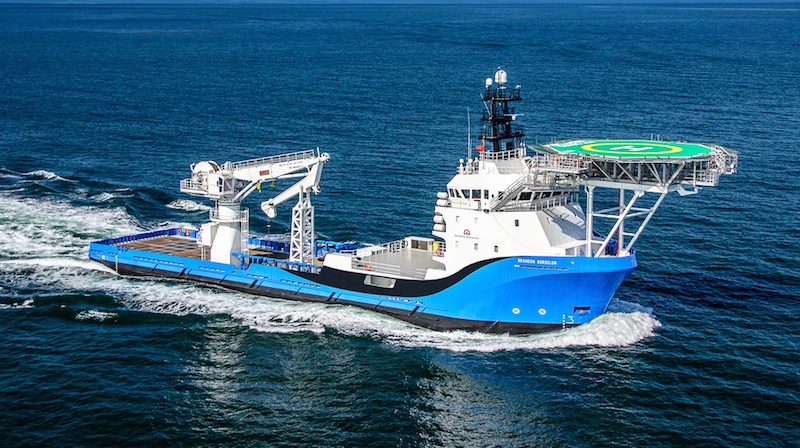Back in February, Todd Hornbeck of Hornbeck Offshore Services warned that the offshore industry must prepare for more than just an extended period of lower oil prices. The new normal, customers told him, is marked by oil prices that will be “lower forever.”
In this environment, where service providers will have to produce even greater efficiencies, which vessels will find work? Hornbeck and others say that one possible bright spot is multipurpose vessels (MPSVs) serving the inspection, maintenance and repair (IMR). This type of work cannot be put off forever.
Among the OSVs in this vessel class is the HOS Warhorse, the first of two 365' MPSVs being built at Gulf Island Shipyards for Hornbeck. The 6,265-dwt MPSV features 250-MT and 110-MT large heave-compensated cranes, a 15'x18' moon pool and two ROVs. Another is the 212’7″x59’1″x25’7″ multipurpose field support vessel (MPFSV) Harvey Stone, built last year by Eastern Shipbuilding Group for Harvey Gulf International Marine. Eastern is also finishing up its last MPSV for Harvey Gulf, the Harvey Blue Sea.
A vessel class configured for the evolving specialty market is characterized by Bordelon Marine’s three subsea ultralight intervention vessels. Bordelon calls them ULIVs. The vessels are outfitted with equipment needed for subsea intervention, including cranes, ROVs, launch-and-recovery (LAR) systems, and helidecks.
Consolidation, more vessel coldstackings and scrappings almost certainly lie ahead for the OSV industry, which means few new OSVs will be built anytime soon.
However, I expect that the aforementioned specialty vessel types will be in demand. But just like PSVs, there is also no shortage of steel in the MPSV market.




